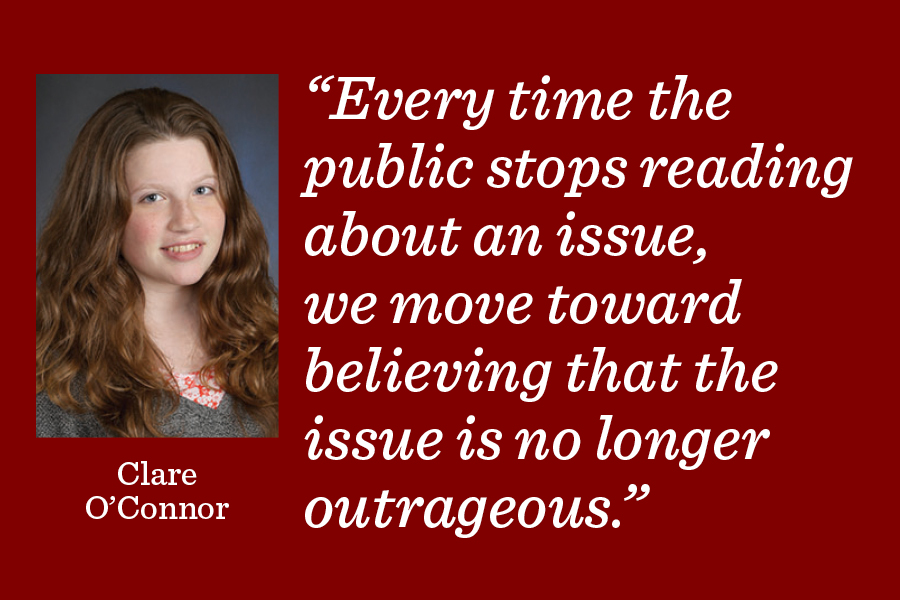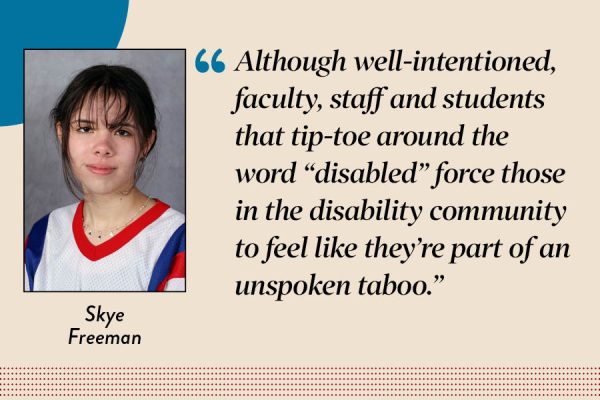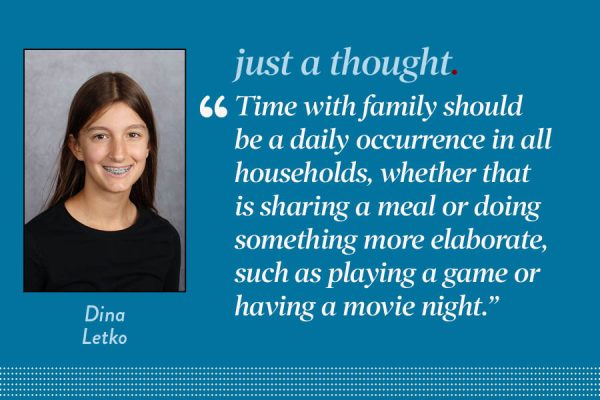Rapid news cycles conceal human suffering
Midway Staff
The way that news moves on from crises and tragedies without every returning back to ongoing human misery is a problem, writes Assistant Editor Clare O’Connor.
October 7, 2021
In August, as the United States struggled through its hasty military withdrawal from Afghanistan, the crisis in Afghanistan dominated my Instagram timeline, my recommended news feed and many of my conversations. For almost a full week, Afghanistan was trending on Twitter as people blamed former President Donald Trump or President Joe Biden and argued about how the United States should have handled its withdrawal.
The coverage soon tapered off. By September, news outlets had moved on from the still-developing tragedy, and I found myself trying to recall other times when Afghanistan was “trending.” Looking back, I can remember a week’s worth of news when Mr. Trump signed an agreement with the Taliban and a few days of news after a particularly heinous drone strike, but I don’t remember anything changing.
Every year, the American public cycles through myriad tragedies like the crisis in Afghanistan, prompting a torrent of news and attention. For a week or a month, articles are published dissecting a particular issue until society loses interest and moves on. However, we need to refuse to turn away from difficult issues so we don’t enable this transitory news cycle.
It’s natural to accept this pattern as an unfortunate societal constant. So many tragedies happen every day that it seems impossible to pay attention to any one issue for long. That mindset exacerbates this cycle. Policymakers respond to public concern while an issue is popular, but the news moves on too quickly to hold those in power accountable for their promises. Our fickle outrage is what allows our elected leaders to avoid making substantial change.
Every time the public stops reading about an issue, we move toward believing that the issue is no longer outrageous.
— Clare O'Connor
By feeding into fast news cycles, people also desensitize themselves to suffering. Every time the public stops reading about an issue, we move toward believing that the issue is no longer outrageous. Social norms have to shift so we can justify our waning interest. Every time we stop reading, we start to believe that suffering is more acceptable.
This problem feels insurmountable, but we can do some things. I urge you to search out news stories about ongoing problems that matter to you, rather than simply responding to the most emotionally engaging news of the day. Besides Afghanistan, I think about gun violence, the protests in Hong Kong and the Uyghur genocide. Those issues continue, even when the news cycle turns away. The public can force journalists to stay dedicated to crises around the world if we keep reading. Only then can substantial change happen. It’s not much, but if enough people deliberately pay attention, we can influence patterns of press coverage and even the actions of people in power.


















